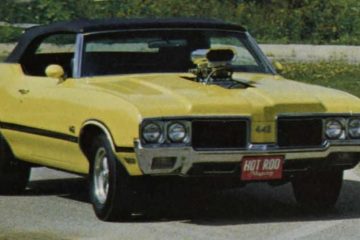Nestled in the heart of automotive history, Plymouth cars have left an indelible mark on the roads of yesteryears. From classic cruisers to vintage beauties, Plymouth enthusiasts know the value of keeping these gems in top-notch condition. However, as time weaves its intricate tapestry, the need for reliable Plymouth car repair becomes increasingly vital. Delving into the world of reviving these automotive treasures, let’s explore the art of Plymouth car repair and restoration, uncovering the secrets to keeping these iconic vehicles running smoothly for generations to come.
Table of Contents
- Heading 1: Expert Tips for DIY Plymouth Car Repair
- Heading 2: Choosing the Right Parts for Your Plymouth Repair
- Heading 3: Common Plymouth Car Issues and How to Address Them
- Heading 4: The Importance of Regular Maintenance for Your Plymouth
- Q&A
- The Way Forward
Heading 1: Expert Tips for DIY Plymouth Car Repair
Are you looking to tackle some DIY repairs on your Plymouth car? Here are some expert tips to help you navigate the process smoothly. First and foremost, always wear safety goggles and gloves when working on your vehicle to protect yourself from any potential hazards.
- Inspect your car’s manual for specific instructions on maintenance and repair.
- Invest in high-quality tools to make the job easier and more efficient.
- Take your time and be patient, rushing through repairs can lead to costly mistakes.
- Consult online forums and tutorials for additional guidance if needed.
When dealing with electrical components, disconnect the battery to avoid any accidental shocks. Additionally, label and organize all removed parts to streamline the reassembly process. By following these tips, you can successfully tackle Plymouth car repairs with confidence.


Heading 2: Choosing the Right Parts for Your Plymouth Repair
When it comes to repairing your Plymouth, selecting the right parts is crucial for ensuring optimal performance and longevity. Whether you’re working on a classic Barracuda or a modern Voyager, choosing high-quality components can make a significant difference in the repair process. **Opt for genuine OEM parts** to maintain the authenticity and reliability of your Plymouth vehicle.
Consider the specific needs of your Plymouth model to find parts that are compatible and designed to meet its requirements. Look for components that offer durability, performance, and a perfect fit. By investing in quality parts, you can enhance the overall functionality of your Plymouth and enjoy a smoother driving experience. Explore a wide range of options to find the perfect match for your repair project and keep your Plymouth running at its best.

Heading 3: Common Plymouth Car Issues and How to Address Them
When it comes to owning a Plymouth car, some common issues may arise over time, causing inconvenience and frustration for drivers. One prevalent problem many Plymouth owners face is engine overheating, which can stem from issues with the cooling system or a malfunctioning thermostat. To address this issue, it is crucial to regularly check the coolant levels, ensure proper functioning of the radiator, and promptly replace any worn-out or damaged components to prevent overheating.
Another common challenge Plymouth drivers encounter is electrical issues, such as faulty wiring, dead batteries, or malfunctioning lights. To tackle these electrical problems effectively, it’s essential to conduct thorough inspections of the wiring system, replace any damaged fuses, and seek professional help if needed to troubleshoot complex electrical issues. By staying vigilant and proactive in addressing these common Plymouth car issues, drivers can ensure a smoother and more reliable driving experience on the road.
| Common Plymouth Car Issues | Solutions |
|---|---|
| Engine Overheating | Check coolant levels, inspect radiator, replace faulty components |
| Electrical Issues | Inspect wiring, replace fuses, seek professional help if needed |


Heading 4: The Importance of Regular Maintenance for Your Plymouth
Regular maintenance is the key to keeping your Plymouth running smoothly for years to come. By staying on top of scheduled inspections and servicing, you not only ensure the safety of your vehicle but also extend its lifespan. From oil changes to brake checks, each maintenance task plays a crucial role in maintaining the overall health and performance of your Plymouth.
Engaging in regular maintenance not only prevents unexpected breakdowns but also saves you money in the long run. By addressing minor issues early on, you avoid costly repairs down the line. Additionally, a well-maintained Plymouth retains its resale value, providing you with peace of mind and a reliable vehicle for all your travels. Remember, a little maintenance goes a long way in preserving the beauty and functionality of your beloved Plymouth.
Q&A
Q: Why is regular maintenance crucial for keeping my Plymouth in top condition?
A: Regular maintenance is key to preserving the performance and longevity of your Plymouth. Routine check-ups help catch potential issues early, ensuring they are addressed before they escalate and become costly repairs.
Q: What are some common signs that my Plymouth needs repair?
A: Some common signs that your Plymouth may need repair include strange noises, dashboard warning lights, unusual odors, fluid leaks, or a decrease in performance. If you notice any of these symptoms, it’s best to have your vehicle inspected by a professional.
Q: How can I find a reliable Plymouth car repair shop?
A: When looking for a reliable Plymouth car repair shop, consider asking for recommendations from friends or family, reading online reviews, checking certifications and qualifications of the technicians, and ensuring the shop specializes in servicing Plymouth vehicles.
Q: What should I do if my Plymouth breaks down unexpectedly?
A: In case your Plymouth breaks down unexpectedly, prioritize your safety by pulling over to a safe location, turning on hazard lights, and contacting a towing service or roadside assistance. Avoid attempting repairs yourself unless you have the necessary expertise.
Q: How can I prevent future repair issues with my Plymouth?
A: To prevent future repair issues with your Plymouth, follow the manufacturer’s recommended maintenance schedule, drive cautiously to avoid unnecessary wear and tear, keep an eye on warning signs, and address any concerns promptly to maintain your vehicle’s optimal performance.
The Way Forward
As you embark on the journey to revitalize your Plymouth’s performance, remember that proper care and maintenance are key to ensuring a smooth ride for years to come. By entrusting your vehicle to skilled professionals and staying proactive with upkeep, you’re investing in both its longevity and your peace of mind. Let your Plymouth continue to turn heads on the road, knowing that it’s in good hands. Drive on with confidence, knowing that each repair and tune-up brings you closer to that like-new feeling. Thank you for joining us on this exploration of Plymouth car repair – may your automotive adventures always be thrilling and trouble-free.




0 Comments